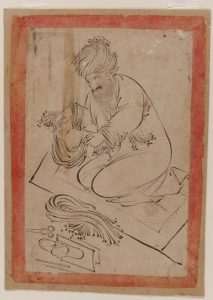The aim of this project is to involve scholars from a wide range of disciplines in the commencement of an organised effort to utilise an extensive range of sources to recover evidence of the ‘voices’ of ‘subalterns’ across the pre-modern and modern terrains of both rural and urban society across the Persianate world.
The wide-ranging sources to be explored for direct and indirect access to these voices could include elite Persian diplomatic and political-economic (court-level) materials but also those drawn from such a broad range of ‘cultural’ spheres as, for example, art and architecture (including cinema, for the modern period), prose, poetry and other media and religious materials (Sunni, Shi`i and Sufi) of all genres in all relevant languages. The project seeks also to explore attitudes toward the subaltern by the authors of these sources. Finally, the project aims also to identify problems in accessing/using the sources and questions/avenues for further research across Persianate history and, in the process, to establish an on-going network to chart pathways for further associated research projects and support for these.

(c) Freer Gallery of Art and Arthur M. Sackler Gallery.
Particular areas of research interest might include changing perceptions of urban middle and lower middle-class elements, peasants and/or tribes in both Iranian and non-Iranian ‘elite’ political and otherwise ‘official’ literature (court histories, firmans and other documents, travelogues, commercial reports, and the Iranian media – TV, radio and newspapers) as well as in prose and poetry (and, in the recent period, cinema). The changing representation of such elements in miniatures and paintings might also be studied, as might their appearance in a range of religious sources, including fiqh rulings, for example. Questions to be posed might include, for example, what are the perceptions among the ulama of their fellow believers from such backgrounds? How did the Pahlavi court ‘view’ peasants and tribes in the years up to and including the White Revolution, and what explains such attitudes? What have been the changing perceptions of these elements by IRI elites? What are, and what are the roots of, the views of such elements held by the urban youth of today’s Iran?
There will be four one-day workshops over the lifetime of the project organised to address subalterns across the following historical periods: pre-Safavid Iran, the Safavid period, the Zand/Qajar periods and the Pahlavi/IRI periods.
Each gathering will aim to include papers from a broad range of academic disciplines utilising materials from across a diverse body of sources. It is envisioned that selected papers from each of the workshops will, after peer reviewing, be made available via Open Access sourcing.
The presentations from the first workshop, on pre-Safavid subalterns, held in Edinburgh in November 2015, are now uploaded onto You Tube. Please click here to view the presentations and find out more about the project.
Limited funding support for travel and/or accommodation is available, with priority for those presenters who are otherwise unable to secure partial/full funding from their home institutions.
Selected papers from the workshops will be published.